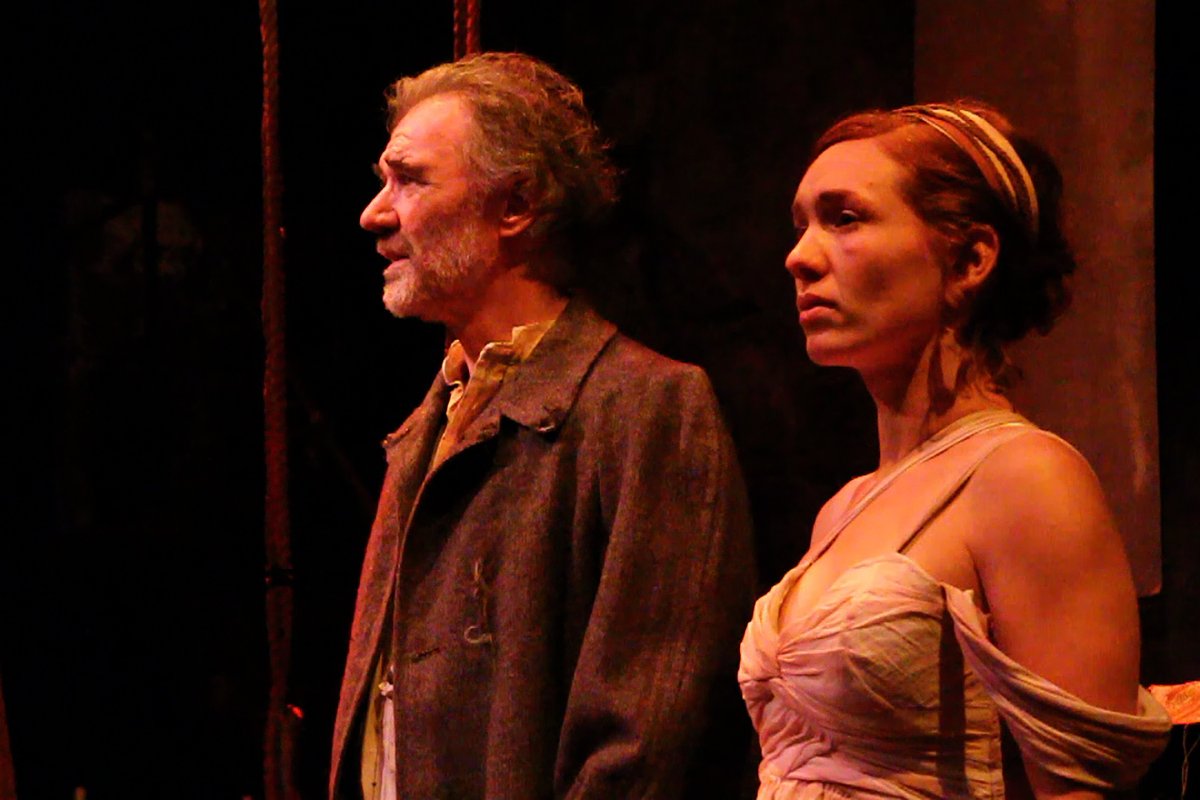“Helen’s been stolen and the Greeks are here to get her back—it’s always something isn’t it?… But it’s a good story.”—AN ILIAD, Homer adapted by Lisa Peterson and Denis O’Hare

The cast of characters is one of the great things about Homer’s Iliad, the 3,000-year-old foundational work of Western literature: Greek King Agamemnon and his warriors Achilles, Odysseus, Nestor, and Patroclus besiege the Trojan king Priam, his city of Troy and his sons Hector and Paris, who started the war by abducting the beautiful Greek princess Helen—and those are just the major, non-divine players. So it’s impressive that Lisa Peterson and Denis O’Hare’s adaptation of AN ILIAD, now in a Lantern Theater Company production, manages to bring to these characters and their epic struggle to life using just a sole narrator and musical accompaniment.
Much of AN ILIAD’s success can be attributed to Peter DeLaurier’s engaging performance. He enters Meghan Jones’s simple tavern-like set, lays down a suitcase, and wearily begins to share Homer’s tale: “everytime I sing this song I hope it’s the last time.” Ostensibly, he’s a poet who’s been telling the warring story for thousands of years and it has worn him down.
DeLaurier communicates the Poet’s compassion and regret for the cruelty and sorrow of war (Achilles’ loss of Patroclus, Prium’s loss of Hector). Peterson and O’Hare, and director M. Craig Getting, contemporize the story with references to American towns and a moving list of wars through the ages, culminating in a fast-paced recitation of modern conflicts. Though told by “the Poet”, little of the narration is in Homeric verse; this is a modern vernacular retelling of part of Homer’s story.
The playwrights also add a layer of philosophical contemplation to Homer’s repetition and poetry: “Gods never die,” the Poet claims, “they change, they burrow inside us, they become us.”—making even the antiquated mythology of Homer relatable. Still, much of the play’s power comes from Homer’s timeless episodes, such as Achilles vengeance for Patroclus’s death.
Homer’s epic was supposedly developed as an oral poem centuries before being written down. But though ancient audiences may have been used to sitting and listening to a narrator for hours at a sitting, AN ILIAD’s 105-minute running time (with no intermission) makes demands on contemporary audiences. If we find ourselves drifting off at times it may be more of a indictment of our own short-attention spans than DeLaurier’s delivery.
More problematic to modern audiences is Getting’s decision to incorporate another character into the adaptation. Liz Filios co-designed and composed (with Michael Hahn) the production’s beautiful, simply elegant sounds. But rather than merely playing the music, Filios appears in décolleté dress (costumes by Natalia de la Torre) as the embodiment of a muse. The silent empathy of her voiceless role grates in our feminist times, even if it adds pathos and interest to DeLaurier’s moving monologues.
[St. Stephen’s Theater, 923 Ludlow Street] November 10-December 11, 2016; lanterntheater.org.
